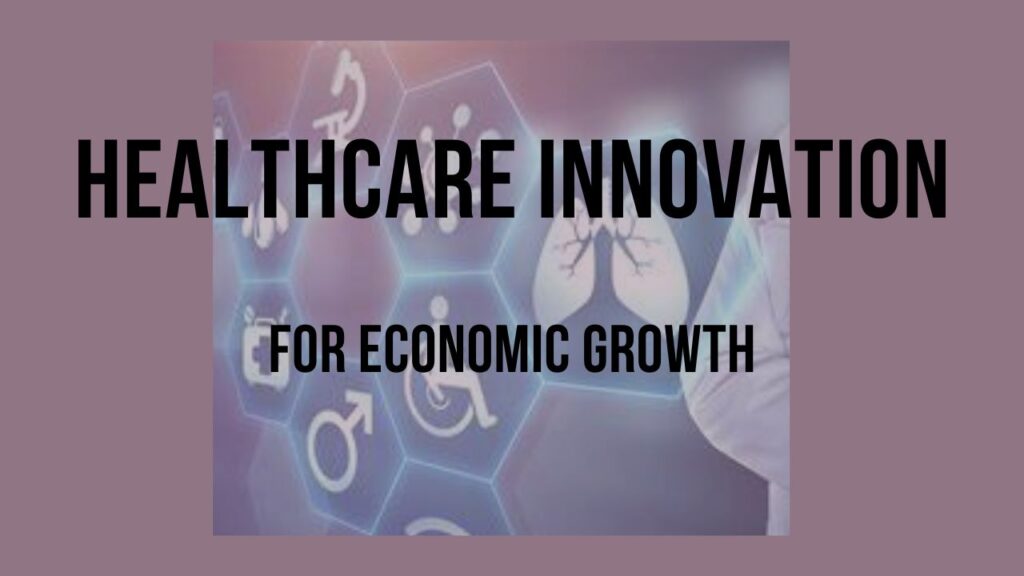Healthcare innovation isn’t just transforming lives; it’s morphing into a powerful engine for economic development.


The 21st century is witnessing a healthcare revolution unlike any before. Fuelled by a confluence of factors – rapid technological advancements, a burgeoning life sciences sector, and a growing emphasis on preventative care – healthcare innovation isn’t just transforming lives; it’s morphing into a powerful engine for economic development. This transformation is multifaceted, impacting economies on a national and global scale.
A Flourishing Industry: Jobs, Investment, and Growth
At the heart of this economic impact lies the burgeoning healthcare industry itself. The development of new drugs, medical devices, and diagnostic tools is creating a fertile ground for job creation. A 2022 report by the American Hospital Association estimates that the healthcare sector employs over 21 million people in the United States alone, making it the nation’s largest employer. This growth extends beyond traditional healthcare providers. Research and development, manufacturing, sales, and healthcare IT – all these sectors are experiencing a surge in employment opportunities due to the constant churn of innovation.
Furthermore, healthcare innovation attracts significant investments. Venture capitalists are pouring billions into research institutions and biotechnology firms. A 2023 report by PwC: [invalid URL removed] revealed that global healthcare venture capital funding reached a staggering $330 billion in 2022. This influx of capital strengthens a nation’s competitive edge by fostering a culture of innovation and attracting top talent.
Efficiency and Cost Savings: A Double Boon
Innovation isn’t just about creating new products; it’s also about optimizing existing systems. Technologies like telemedicine and remote patient monitoring are revolutionizing healthcare delivery. A 2021 study published in the Journal of the American Medical Association found that telemedicine consultations can reduce healthcare costs by up to 50%. These technologies allow for more efficient use of resources, reducing unnecessary hospital admissions and procedures. Additionally, advancements in diagnostics, such as non-invasive blood tests for early cancer detection, facilitate preventative measures and early intervention, leading to long-term cost savings for both patients and healthcare systems. A 2023 study by the American Cancer Society estimates that the cumulative savings from early detection of colorectal cancer alone could be as high as $54 billion over a decade in the US.
A Healthier Workforce Fuels a More Productive Economy
The link between a healthy workforce and a productive economy is undeniable. Healthcare innovation plays a crucial role in promoting overall well-being by combating chronic diseases, improving life expectancy, and reducing illness. A 2020 study by the World Health Organization found that a 10% reduction in chronic diseases like diabetes and heart disease could increase global GDP by up to $1.2 trillion annually. This translates into a healthier workforce with fewer sick days and increased productivity. Additionally, a healthier workforce reduces the burden on social security programs and frees up resources for further economic development.
Global Collaboration: Sharing Knowledge for a Healthier World
The digital revolution has transcended borders, facilitating the exchange of healthcare knowledge and expertise on a global scale. Collaborative research efforts, fuelled by advancements in communication technology, are accelerating breakthroughs. For instance, the COVID-19 pandemic saw an unprecedented level of international collaboration on vaccine development. This not only improved global health outcomes but also created new economic opportunities through knowledge sharing and joint ventures between pharmaceutical companies across the world.
Beyond Healthcare: A Catalyst for Scientific Progress
Healthcare innovation acts as a breeding ground for scientific and technological progress that extends far beyond the medical field. Research areas like genomics, bioinformatics, and artificial intelligence have applications in fields like agriculture, materials science, and environmental sustainability. For example, advancements in gene editing used to develop new therapies for diseases are also having a significant impact on agricultural research, allowing scientists to develop crops with improved yields and resistance to pests. This fosters a broader culture of innovation, leading to breakthroughs across various sectors and propelling overall economic growth.
Challenges and Considerations: Responsible Development for Equitable Benefits
While the economic potential of healthcare innovation is undeniable, harnessing it fully requires addressing significant challenges. Ensuring equitable access to new technologies across income levels and geographical locations is paramount. A 2022 study by the World Health Organization found that low- and middle-income countries often lag behind in adopting new healthcare technologies due to infrastructure limitations and affordability concerns. Addressing this disparity is crucial to maximize the overall health and economic benefits of innovation.
Furthermore, the rising costs of sophisticated treatments pose a challenge to healthcare budgets. Balancing innovation with affordability requires policymakers to implement effective cost-containment strategies while encouraging research and development. Additionally, the ethical considerations of emerging fields like gene editing need careful navigation. Open discussions and robust regulatory frameworks are essential to ensure responsible development and public trust.


Dr. Vivek Kumar Jha
Prof. and H.O.D
Department of Audiology and Speech Language Pathology
Faculty of Allied Health Sciences,
Shree Guru Gobind Singh Tricentenary University,
Gurugram, Haryana.











